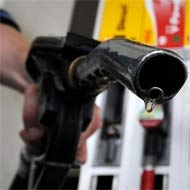 New Delhi, Mar 3: Diesel price for bulk consumers like Railways has been hiked by almost a rupee per litre, while the price of cooking gas (LPG) is cut by Rs 37.50 a cylinder that consumers buy beyond their quota of subsidised bottles.
New Delhi, Mar 3: Diesel price for bulk consumers like Railways has been hiked by almost a rupee per litre, while the price of cooking gas (LPG) is cut by Rs 37.50 a cylinder that consumers buy beyond their quota of subsidised bottles.
Neither the retail prices of diesel sold through petrol pumps nor rates for subsidised LPG cylinders has been changed.
The government had in January allowed state-owned oil firms to sell diesel to all consumers taking supplies from their installations at market price.
Pursuant to the decision, oil companies sold diesel to bulk consumers like Defence, Railways and State Road Transport Corporations at a rate of Rs 58.58 per litre as compared to Rs 48.16 per litre price of the fuel at petrol pumps in Delhi.
Industry sources said the oil firms yesterday hiked the price of diesel for the bulk consumers by 94 paisa, excluding local sales tax or VAT. The actual increase for consumers will be up to Rs 1.25 per litre.
The hike in bulk diesel price was necessitated by the firming up of international oil rates. This has led to loss on diesel sold through petrol pumps rising to Rs 11.26 per litre from Rs 10.72 last month.
Also, oil companies cut the price of cooking gas (LPG) that consumers will have to buy beyond their quota of 9 subsidised cylinders in a year. The non-subsidised LPG will cost Rs 904.50 per 14.2-kg cylinder as against Rs 942 a bottle previously.
Just yesterday, the oil companies had raised petrol price by Rs 1.40 a litre, excluding VAT on firming global oil rates. The hike in Delhi translated into Rs 1.68 and petrol now costs Rs 70.74 a litre in the national capital.
Together with Rs 1.50 per litre hike in rates effected from February 16, petrol price have been raised by about Rs 3 per litre in two weeks.
Sources said oil firms continue to incur a loss of Rs 439 on sale of every 14.2-kg cylinder at subsidised rate of Rs 410.50 in Delhi. On kerosene, they lose Rs 33.43 per litre and will end the fiscal with a loss of Rs 163,500 crore on fuel sales.






Comments
Add new comment